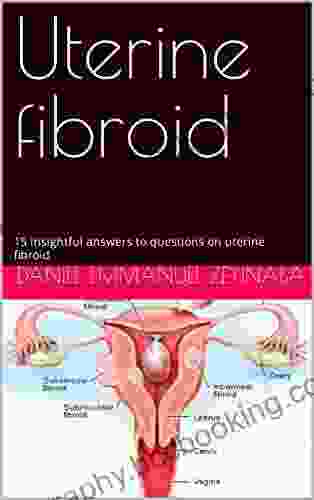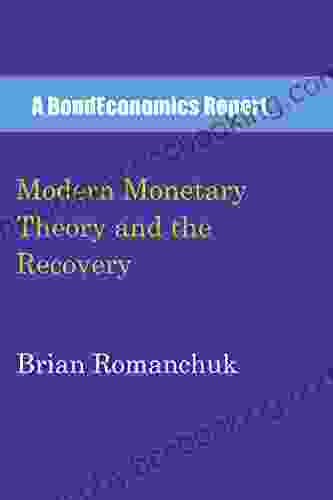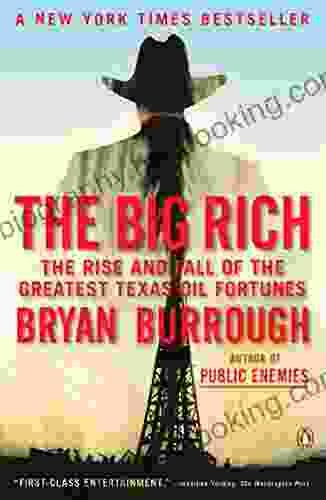Modern Monetary Theory and the Recovery

What is Modern Monetary Theory?
Modern Monetary Theory (MMT) is a macroeconomic theory that challenges the traditional view of how money works. MMT proponents argue that the government can create money without causing inflation and that this can be used to fund important programs such as infrastructure, education, and healthcare.
The traditional view of money is that it is a scarce resource that must be carefully managed. Governments are constrained by their tax revenue and borrowing capacity, and they must balance their budgets over time. MMT, on the other hand, argues that money is not a scarce resource and that governments can create as much money as they need without causing inflation.
4.6 out of 5
| Language | : | English |
| File size | : | 4622 KB |
| Text-to-Speech | : | Enabled |
| Enhanced typesetting | : | Enabled |
| X-Ray for textbooks | : | Enabled |
| Word Wise | : | Enabled |
| Print length | : | 166 pages |
| Lending | : | Enabled |
| Screen Reader | : | Supported |
This is because MMT proponents believe that inflation is caused by demand, not by the supply of money. When the government spends money, it creates new demand in the economy. If this demand is met by an increase in production, then there will be no inflation. However, if demand exceeds production, then prices will rise.
MMT proponents argue that the government can use its power to create money to fund important programs without causing inflation. This is because the government can always increase production to meet the demand created by its spending.
Implications of MMT for the Recovery
MMT has a number of implications for the recovery from the COVID-19 pandemic. First, MMT suggests that the government can afford to spend more money to support the economy. This could be used to fund programs such as unemployment benefits, small business loans, and infrastructure projects.
Second, MMT suggests that the government can keep interest rates low without causing inflation. This would make it easier for businesses to borrow money and invest in new projects.
Third, MMT suggests that the government can focus on reducing unemployment rather than on balancing the budget. This would help to ensure that everyone who wants a job can find one.
Criticisms of MMT
MMT has been criticized by some economists who argue that it is inflationary and unsustainable. They argue that if the government creates too much money, it will lead to higher prices and a loss of faith in the currency.
MMT proponents counter that these criticisms are based on a misunderstanding of how MMT works. They argue that MMT is only inflationary if the demand for goods and services exceeds the supply. If the government can increase production to meet the demand created by its spending, then there will be no inflation.
MMT is a macroeconomic theory that challenges the traditional view of how money works. MMT proponents argue that the government can create money without causing inflation and that this can be used to fund important programs such as infrastructure, education, and healthcare.
MMT has a number of implications for the recovery from the COVID-19 pandemic. It suggests that the government can afford to spend more money to support the economy, keep interest rates low, and focus on reducing unemployment.
MMT has been criticized by some economists who argue that it is inflationary and unsustainable. However, MMT proponents counter that these criticisms are based on a misunderstanding of how MMT works.
4.6 out of 5
| Language | : | English |
| File size | : | 4622 KB |
| Text-to-Speech | : | Enabled |
| Enhanced typesetting | : | Enabled |
| X-Ray for textbooks | : | Enabled |
| Word Wise | : | Enabled |
| Print length | : | 166 pages |
| Lending | : | Enabled |
| Screen Reader | : | Supported |
Do you want to contribute by writing guest posts on this blog?
Please contact us and send us a resume of previous articles that you have written.
 Book
Book Novel
Novel Page
Page Chapter
Chapter Text
Text Story
Story Genre
Genre Reader
Reader Library
Library Paperback
Paperback E-book
E-book Magazine
Magazine Newspaper
Newspaper Paragraph
Paragraph Sentence
Sentence Bookmark
Bookmark Shelf
Shelf Glossary
Glossary Bibliography
Bibliography Foreword
Foreword Preface
Preface Synopsis
Synopsis Annotation
Annotation Footnote
Footnote Manuscript
Manuscript Scroll
Scroll Codex
Codex Tome
Tome Bestseller
Bestseller Classics
Classics Library card
Library card Narrative
Narrative Biography
Biography Autobiography
Autobiography Memoir
Memoir Reference
Reference Encyclopedia
Encyclopedia Carolina Maria De Jesus
Carolina Maria De Jesus Carlo Barzini
Carlo Barzini Catherine Gavin
Catherine Gavin Brian Stafford
Brian Stafford Cassandra Khaw
Cassandra Khaw Bret Contreras
Bret Contreras Caroline Eden
Caroline Eden Carrie Turley
Carrie Turley Brigette Barrager
Brigette Barrager C Atkinson
C Atkinson Bruce Sterling
Bruce Sterling C Calvin Jones
C Calvin Jones Carrie Prudence Winter
Carrie Prudence Winter Bruce Sloane
Bruce Sloane Carl Johan Calleman
Carl Johan Calleman Carolina Rogoll
Carolina Rogoll Carolina Rose
Carolina Rose Bryan Miles
Bryan Miles Brian Lockman
Brian Lockman Carl Hart
Carl Hart
Light bulbAdvertise smarter! Our strategic ad space ensures maximum exposure. Reserve your spot today!

 Trevor BellUnleash the Darkness: Embark on a Bloodthirsty Saga with "Undeath Ascendant...
Trevor BellUnleash the Darkness: Embark on a Bloodthirsty Saga with "Undeath Ascendant...
 Joseph FosterAn Immigrant Latino in the World: A Powerful Story of Resilience and Triumph
Joseph FosterAn Immigrant Latino in the World: A Powerful Story of Resilience and Triumph
 Sean TurnerDiscover the Unstoppable Spirit of Amelia Earhart: A Thrilling Adventure for...
Sean TurnerDiscover the Unstoppable Spirit of Amelia Earhart: A Thrilling Adventure for...
 Travis FosterUnveiling the Other Sight of Telemarketing: A Comprehensive Guide to Success
Travis FosterUnveiling the Other Sight of Telemarketing: A Comprehensive Guide to Success Harold BlairFollow ·5.6k
Harold BlairFollow ·5.6k Jaden CoxFollow ·14.1k
Jaden CoxFollow ·14.1k Leon FosterFollow ·11.9k
Leon FosterFollow ·11.9k Oscar BellFollow ·2.1k
Oscar BellFollow ·2.1k Jonathan FranzenFollow ·9.8k
Jonathan FranzenFollow ·9.8k Jedidiah HayesFollow ·13.5k
Jedidiah HayesFollow ·13.5k Russell MitchellFollow ·8.6k
Russell MitchellFollow ·8.6k Tennessee WilliamsFollow ·5.2k
Tennessee WilliamsFollow ·5.2k

 Andy Hayes
Andy HayesUnveil the Rich Tapestry of Rural Life: Immerse Yourself...
Step into the enchanting pages of "Still...

 David Mitchell
David MitchellUnlocking the Depths of Cybersecurity: An In-Depth Look...
In the ever-evolving landscape of...

 Seth Hayes
Seth HayesUnlock the Secrets of Watercolor Landscapes: 37 Tools for...
Embark on a...

 Tyler Nelson
Tyler Nelson15 Insightful Answers to Questions on Uterine Fibroid
Uterine fibroids...

 Evan Hayes
Evan HayesAfrica In My Soul: A Literary Odyssey That Captivates the...
In a world where diverse cultures...
4.6 out of 5
| Language | : | English |
| File size | : | 4622 KB |
| Text-to-Speech | : | Enabled |
| Enhanced typesetting | : | Enabled |
| X-Ray for textbooks | : | Enabled |
| Word Wise | : | Enabled |
| Print length | : | 166 pages |
| Lending | : | Enabled |
| Screen Reader | : | Supported |






